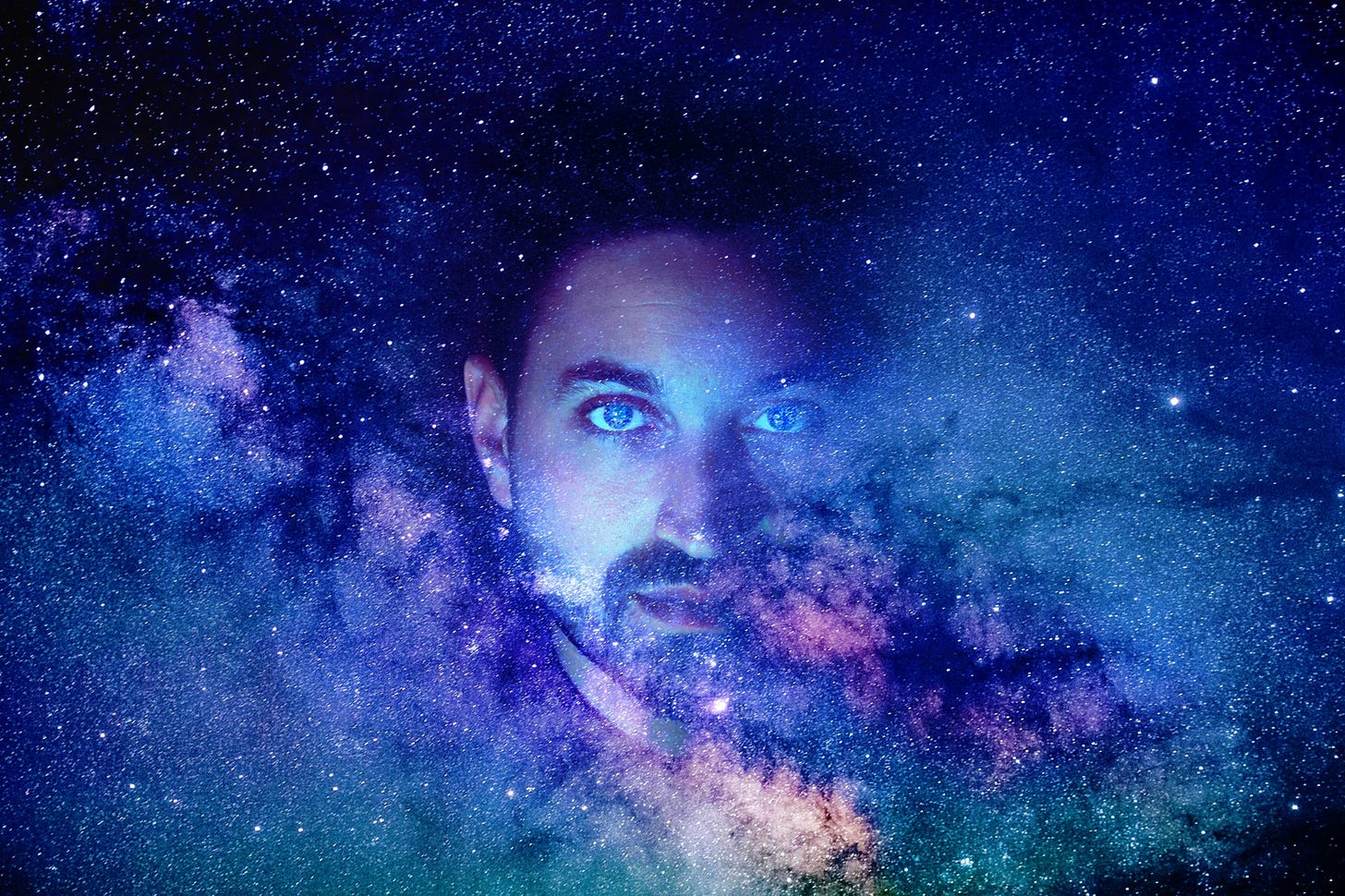This One Thought Completely Changed the Way I Viewed the World
Free will doesn't exist, and why that's a great thing

I sink back into my chair and mutter to myself in disbelief, “No way! This can’t be true. How can free will not exist?”
Determined to prove that free will existed, I fire up my laptop and think, “Now, I just have to do something completely out of my own volition and in no way influenced by any external or internal factor.”
I feel like reading, but I choose not to and watch YouTube instead. Was that a free decision? No, wanting to prove the existence of free will made me deliberately do something I didn’t feel like doing.
“What if I just leave the choice of what I am going to watch to the algorithm?”, I muse.
But this choice was again the result of a cascade of causes — wanting to prove the existence of free will → wanting not to choose what I wanted to watch and make a random choice → making a non-random choice of choosing one of the recommended videos.
These recommendations were in turn pushed to me by YouTube’s deterministic algorithm based on my past viewing history, each of which was a conscious non-random choice again.
No matter the scenario I constructed and no matter how random a decision seemed, I could trace it back to a cause.“Okay”, I flex my knuckles and open a host of YouTube videos in different tabs. Then, I choose one of the tabs at random, and then instead of watching the video, click on one of the recommended “Watch next” ones.
But this still wasn’t a truly random choice.
Deciding to open a bunch of videos wasn’t truly random. It was my brain’s split-second “unconscious” decisions that drove my fingers to click on them. Choosing one of the opened tabs was again a similar “unconscious” decision.
In every case, trying to make a truly random choice ended up triggering a cascade of causes, making me end up with a completely non-random one.
A Perspective Shattering Epiphany
With my efforts seeming to be futile, I sink back into my chair and deep into thought. No matter the scenario I constructed and no matter how random a decision seemed, I could trace it back to a cause.
Then it hit — I was free to do what I wanted, but was I free to want what I wanted? We can all do what we want, but why do we want what we want?
Even if we knew the reason, why do we want what we want to want? Why do we want what we want to want to want?, and so on till infinity. As renowned philosopher Arthur Schopenhauer said,
“Man can do what he wills but he cannot will what he wills.”
If it’s getting convoluted, kindly bear with me. The point I want to drive home is that — we think we’ve made a conscious free choice while in reality, a deterministic chain of causes drives that choice.
Even research has found that — much and possibly all of our decision-making is unconscious. To quote Science Daily,
“Contrary to what most of us would like to believe, decision-making may be a process handled to a large extent by unconscious mental activity. Even several seconds before we consciously make a decision, its outcome can be predicted from unconscious activity in the brain.”
Everything Is Already Determined
Not only us humans but the entire universe is governed by the law of causality — every effect has a cause and every cause has an effect.
The universe is a vast ocean of complex machinery in which we humans are mere cogs.The creation of the universe was the first cause that triggered a bunch of effects which became causes for other effects which became causes for more effects and so on building up infinitely long cause-effect chains. The universe is a vast ocean of complex machinery in which we humans are mere cogs. So are planets, stars, and black holes. As Laplace said,
“We ought to regard the present state of the universe as the effect of its antecedent state and as the cause of the state that is to follow. An intelligence knowing all the forces acting at an instant, as well as the momentary positions of all things in the universe, would be able to comprehend in one single formula the motions of the largest bodies as well as the lightest atoms in the world.
To it, nothing would be uncertain. The future as well as the past would be present to its eyes.”
The universe is deterministic, and everything that is happening or about to happen is already determined. The fact that I am writing this article or you are reading it was also determined by some chain of causes and effects.
An Antidote for Anxiety
Despite being someone that can calmly analyze and solve problems no matter how dire they are, anxiety’s been a lifelong companion. It wasn’t the outcome of things, but the uncertainty of the outcome that used to gnaw at my soul.
In the early days of writing here, I lost sleep thinking about how my articles would perform but didn’t get disappointed even if they flopped. Similarly, the excitement on the nights before first dates doesn’t let me sleep, but no matter how the date goes, I remain as cool as a cucumber.
But this epiphany wiped out my anxiety.Since the universe was deterministic and everything has already been determined, there’s no uncertainty and hence no reason to be anxious. Of all the things I had ever tried in my life, nothing came close to checkmating my anxiety, as this simple thought did.
Moreover, this gave me a newfound appreciation and acceptance of things in life. As the Stoics call it — “Amor Fati” or the “Love of Fate”. Since everything is determined, there is no point complaining or lamenting about the undesirable things that happen in life. As Epictetus said,
“Don’t seek for everything to happen as you wish it would, but rather wish that everything happens as it actually will — then your life will flow well.”
A Rule That’s Worth Living By
Coming back to causality, since everything works in a cause-effect fashion, every single action or thought of ours has some or other effect.
This explains why “Karma is real” — when you do or think something, you introduce some kind of cause which becomes an effect, and upon traversing through these cause-effect chains has a good chance of coming back to you.
So, it’s like sitting in a circle of dominoes and pushing one of them. Domino after domino collapses ultimately making the last one fall right on top of you.

With this, I devised a simple rule for myself, “Neither do nor wish something that you wouldn’t want to be on the receiving side of”.
It’s simple — since everything you do or think has a good chance of coming back to you, don’t do things you wouldn’t want to be done to you.
It’s easy to think that only actions would matter and not our thoughts since they are private and hidden away in our brains. But actions stem from thoughts. As James Allen says,
“A particular train of thought persisted in, be it good or bad, cannot fail to produce its results on the character and circumstances. A man cannot directly choose his circumstances, but he can choose his thoughts, and so indirectly, yet surely, shape his circumstances.”
Final Thoughts
The thought that free will doesn’t exist and that the universe is deterministic has completely changed my worldview and perspective of life. It can change yours as well.
Whenever you feel anxious or stressed out, just remind yourself that the future is already determined and your problems are part of the grand scheme of life.
Also, when adversity strikes in life, take heart in the same thought and choose acceptance. There’s no point complaining or lamenting since what happened couldn’t have happened in any other way.
Moreover, since the world is just a great mirror that reflects your thoughts and actions back at you, be mindful about what you do or say.
Neither do nor think something that you wouldn’t want to be on the receiving side of.




